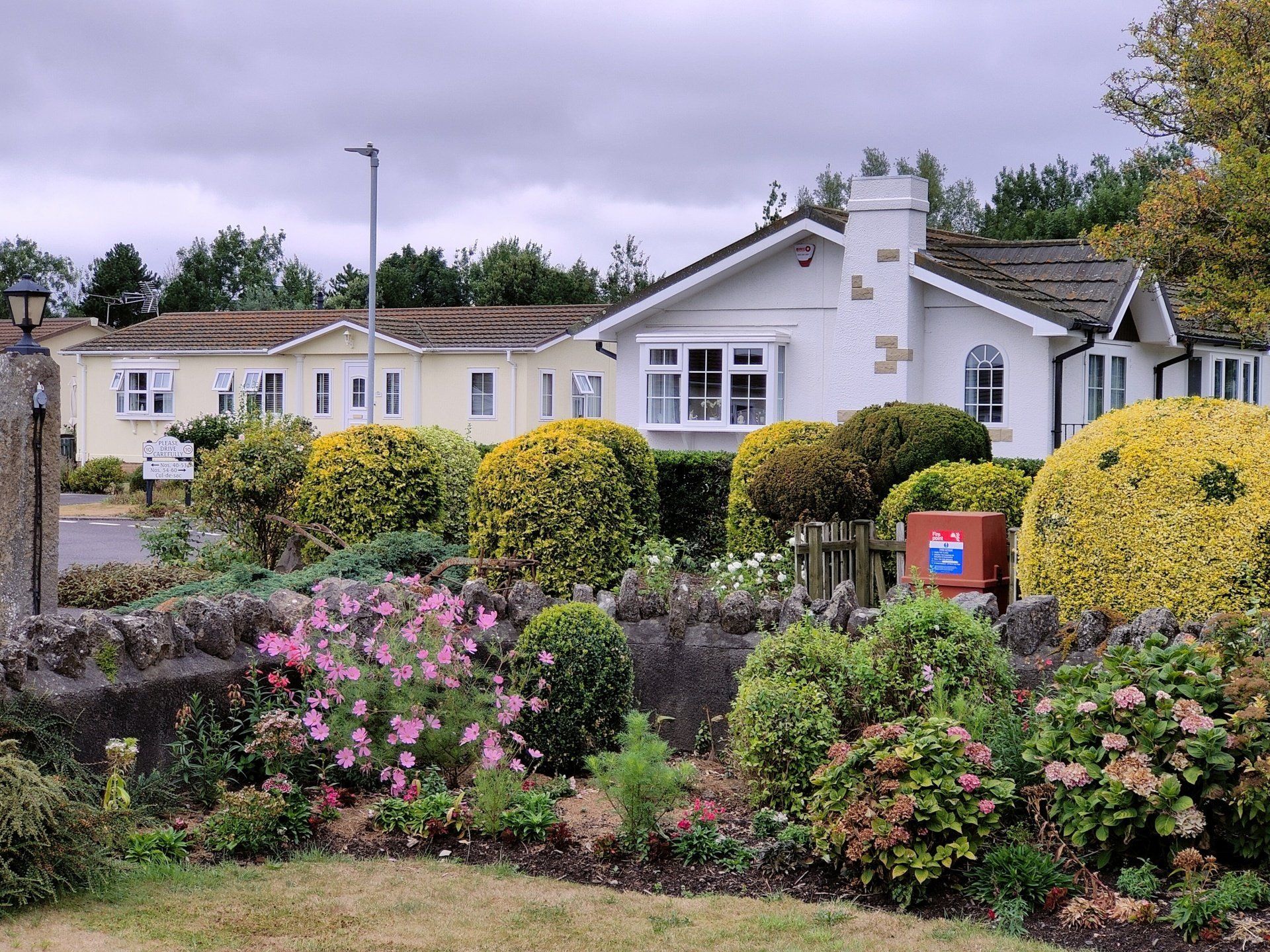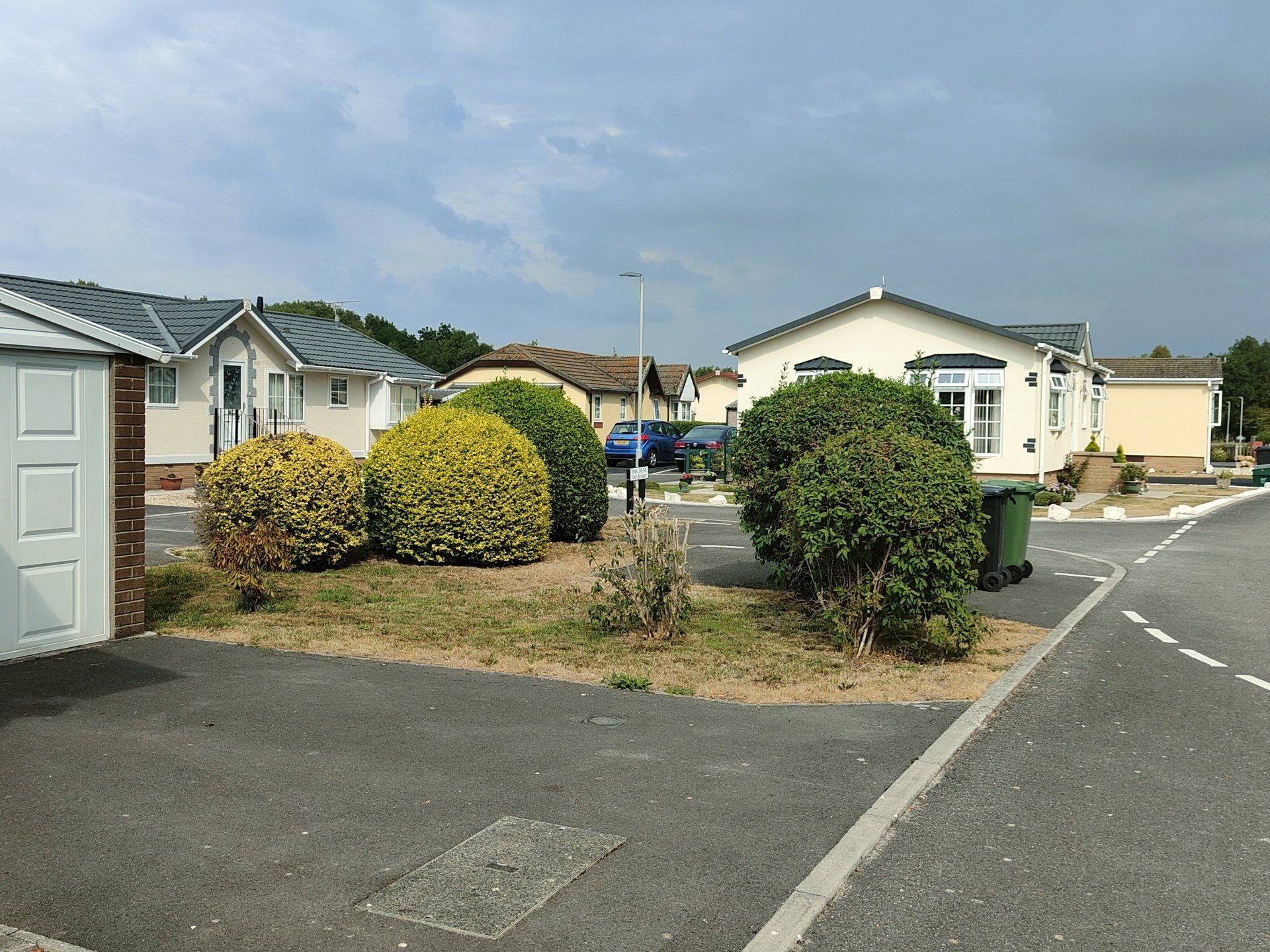Park Homes - useful information

Residential park homes offer great value for money, with costs significantly lower than purchasing an equivalently sized house. Not only are park homes more affordable than standard bricks and mortar homes, but owners can also expect a comfortable and stylish new lifestyle. However there are several points to consider before making a change.
How does park home ownership work?
Park Home is the commonly used term for a mobile home, located on a protected site. Uniquely, unlike traditional homes, a park homeowner owns the structure of the home itself - but not the ground upon which it is located. Instead of owning the land upon which the home sits, most park homeowners rent a pitch from a site owner. A pitch fee is typically paid monthly, but this can vary from site to site. The owner of the park home site must have planning permission and a site licence issued by the local authority. The site licence will state the status of the site - whether it is a holiday site or fully residential. Mobile homes law gives a number of rights and protections to park homeowners who occupy their home as their only or main residence if it is situated on a protected site. A protected site is a privately owned park where the relevant planning permission or site licence allows the land to be occupied wholly, or in part, for year-round residential use.
Is the appointment of a solicitor advised when buying a park home?
As with any home purchase, buying a park home is a major commitment. It is not compulsory but we recommend a solicitor is used to guide you through each stage of the purchase. they can highlight any potential problems at an early stage and provide peace of mind to both sides.
If you choose to use a solicitor, you should find someone that is independent from the seller or site owner.
New or pre-owned park home?
If you are planning to buy a park home you might be interested in looking at both new and pre-owned homes. There are many differences between new and pre-owned homes. The advantage of new homes is that they typically require less maintenance, as new park homes are built from to order. Older park homes may not be as well-insulated as modern properties which will generally be better equipped to handle the weather extremes. Of course, new park homes are considerably more expensive to buy than pre-owned homes. If you are buying a park home on a budget, you may prefer to look at pre-owned properties first of all. If you plan to buy a pre-owned park home, do plenty of research and make sure you ask the seller lots of questions. You may also wish to get a survey report from a specialist park home surveyor.
Should you get a survey done on the park home?
Although it is not compulsory, if you are planning to buy a park home, to assess the condition you may wish to get a survey report from a specialist park home surveyor. Whether you buy a new or pre-owned home, a survey will help you to understand the levels of maintenance that will be required. A surveyor will undertake thorough examinations of the inside, outside, including underneath of the home. They will provide you with a full report, highlighting any issues that may require repair or maintenance. The results of any survey must be provided by the seller if this was completed within 12 months of the sale. For second-hand homes you may wish to get a survey report as it will help you budget for any necessary maintenance or repair work required.
Can you live in the park home all year round?
If you want to purchase a fully residential park home, it is important to ensure that the site is a protected as a permanent residential site. It is important to check as different sites have varying levels of protection under the mobile homes legislation. Before you decide to buy a park home you should carefully read the site licence and conditions; both should be displayed in a prominent place on the site, e.g. on a noticeboard near the entrance. The site licence and conditions will confirm whether the home is for holiday or residential use. If you cannot find the site licence, you can get a copy from the local authority.
What are the Park owners and park home owners’ responsibilities?
The park owner’s responsibilities to their residents are largely covered by the agreement that occupiers sign when they move to the park.
The 2013 Mobile Homes Act legislation sets out a new format for pitch fee reviews and specifies what can be included in that review. Site owners have to use a special form to set out their proposals and to obtain the agreement of residents. Once the fee is agreed, residents must pay a pitch fee to the site owner which is, in effect, rent for the land on which the resident’s home stands. The pitch fee can only be changed once a year. And park owners must give residents 28 days’ notice in writing and use a special form – The Pitch Fee Review Form. If a resident and the park owner cannot agree on a new fee, the site owner can apply to a tribunal.
What happens if I decide to sell my Park Home?
Residents have the right to sell their homes on the open market, or give them to family members. The site owner does not have the right to approve the buyer (or family member) but the incoming resident will have to conform to any site rules (eg. age restriction – many parks are for retired residents only; or pet owners – some parks ban dogs and/or all pets). It is illegal for the park owner to give false or misleading information that would interfere with the sale of a resident’s home or interfere with the sale. The park owner does not have the right to insist on approving the buyer or demand contact information about the buyer.
Can a Park Owner have access to my home at any time?
If a park owner needs to enter a resident’s home or plot to carry out essential repairs, deliver mail and read gas, electricity and water meters, they can do this without any notice between 9am and 6pm. They may also enter at any other time to carry out emergency or essential works, giving as much notice as possible. For any other reason, the site owner must give 14 days’ written notice.
Can the Park Owner make changes to the Park?
Should the park owner consider making improvements to the park, he/she must give at least 28 days’ notice in writing to residents, an also must advise them how they can make comments and observations. They must also tell them if the improvements will mean a change to the pitch fee.
What does the written agreement between the Park Owner and a Resident?
The written agreement also covers the rights and obligations to which the the park home is entitled. These include the resident’s right to keep the park home on its plot, the pitch fee, other charges and services, and the park rules.
What are some pros and cons about buying a Park Home?
The pros include: They’re single-storey, accessible homes; They’re located in secure, social communities; They can be cheap to run (low council tax band etc); They’re the ideal size for retirement; There’s freedom to move your home; They’re affordably priced. The cons include: They won’t increase in value over time; You can’t get a mortgage on a park home; They require regular maintenance; You’ll need to pay commission to the park owner if you decide to sell.

Contact Us
We will get back to you as soon as possible.
Please try again later.
